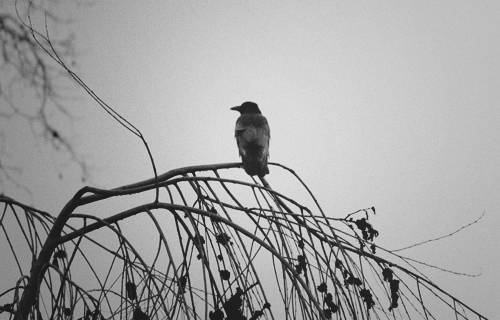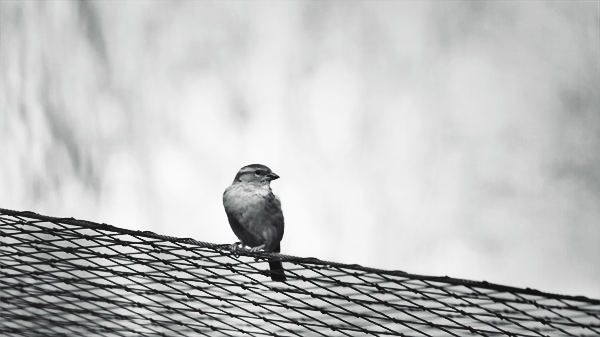Taste ripens at the expense of happiness

🧐 Habits, Data, and Things That Go Bump in the Night: Microsoft for Education — "Microsoft’s ubiquity, however, is sometimes mistaken for banality. Because it is everywhere, because we have all used it forever, we assume we can trust it."
I haven't voluntarily used something made by Microsoft (as opposed to acquired by it) for... about 20 years?
⏳ You Can Set Screen-Time Rules That Don’t Ruin Your Kids’ Lives — "Bear in mind that the limits you set need not be a specific number of minutes. Try to think of other, more natural ways of breaking up their activities. Maybe your kids play one game before tackling homework. Also, consider granting them one day per weekend with fewer restrictions on screen-time socializing. Giving them more autonomy over their weekends helps approximate the fun and flexibility of their pre-COVID world, and lets them unwind and hang out more with their friends."
This has been really hard to managed as a parent, and it's easy to think that you're always doing it wrong.
💬 Why do we keep on telling others what to do? — "Usually starting a conversation out with telling people what you feel they are doing wrong is going to make it a negative conversation all in all, and I tend to believe that it's better to follow “the campfire rule”, try to make all people taking part in a conversation end up a bit better off than what they were when they started the conversation, and telling people what to do or what not to are going straight against this."
Post-therapy, I'm much better at focusing on changing myself than trying to change others. I'd recommend therapy, but that might be construed as an implicit instruction...
🙌 Twitter Considers Subscription Fee for Tweetdeck, Unique Content — "To explore potential options outside ad sales, a number of Twitter teams are researching subscription offerings, including one using the code name “Rogue One,” according to people familiar with the effort. At least one idea being considered is related to “tipping,” or the ability for users to pay the people they follow for exclusive content, said the people, who asked not to be named because the discussions are internal. Other possible ways to generate recurring revenue include charging for the use of services like Tweetdeck or advanced user features like “undo send” or profile-customization options."
This is fantastic news. It would destroy Twitter as it currently stands, but that's fine as it's much worse than it was a decade ago.
🔒 Do lockdowns work? — "It's absurd thinking, but the sceptics have finally found an argument that cannot be categorically disproved. Lockdowns have a scientific rational: you can't transmit a virus to people you don't meet. Contrary to what Toby says in his article, they also have historic precedents: during the Spanish Flu, cities such as Philadelphia closed shops, churches, schools, bars and restaurants by law (they also made face masks mandatory). And now we have numerous natural experiments from around the world showing that infection rates fall when lockdowns are introduced."
There will always be idiots who try and use their influence and eloquence to ensure they're heard. Thankfully, there are people like this who can dismantle their arguments brick-by-brick.
Quotation-as-title by Jules Renard. Image. by Elena Mozhvilo.
Saturday sandcastles
The photos of brutalist sandcastles accompanying this week's link roundup made me both smile and really miss care-free walks on the beach. Although technically we're still allowed to visit the coast, our local council has closed nearby car parks.
This week I've been busy, busy, but managed to squeeze in a bit of non-fiction reading, the best of which I'm sharing below. Oh, and one link that I can' really quote is UnblockIt which was shared via our team chat this week. If your ISP filters certain sites, you might want to bookmark it...
There will be no 'back to normal'
In this article, we summarise and synthesise various - often opposing - views about how the world might change. Clearly, these are speculative; no-one knows what the future will look like. But we do know that crises invariably prompt deep and unexpected shifts, so that those anticipating a return to pre-pandemic normality may be shocked to find that many of the previous systems, structures, norms and jobs have disappeared and will not return.
Nesta
I'm going to return to this article time and again, as it breaks down in a really helpful way what's likely to happen post-pandemic in the following areas: political, economic, sociocultural, technological, legal, and environmental.
Plan for 5 years of lockdown
I’m attempting to be pragmatic. I think this is one of those times where we should hope for the best but plan for the worst. Crucially, I think that a terrifying number of people are in denial about the timescales of disruption that Covid-19 will cause, and this is causing them to make horrible personal and professional decisions. I believe that we have a responsibility to consider any reasonably likely worst case scenario, and take appropriate steps to mitigate it. But to do that we have to be honest about the worst case.
Patrick Gleeson
It's hard to disagree with the points made in this post, especially as the scenario planning that universities are doing seems to point in the same direction. Having said that, I don't think 'lockdown' will mean the same thing everywhere and at each stage of the pandemic.
'Will coronavirus change our attitudes to death? Quite the opposite'
For centuries, people used religion as a defence mechanism, believing that they would exist for ever in the afterlife. Now people sometimes switch to using science as an alternative defence mechanism, believing that doctors will always save them, and that they will live for ever in their apartment. We need a balanced approach here. We should trust science to deal with epidemics, but we should still shoulder the burden of dealing with our individual mortality and transience.
The present crisis might indeed make many individuals more aware of the impermanent nature of human life and human achievements. Nevertheless, our modern civilisation as a whole will most probably go in the opposite direction. Reminded of its fragility, it will react by building stronger defences. When the present crisis is over, I don’t expect we will see a significant increase in the budgets of philosophy departments. But I bet we will see a massive increase in the budgets of medical schools and healthcare systems.
Yuval Noah Harari
Some amazing writing, as ever, by Harari, who argues that, because our secular societies focus on the here and now rather than the afterlife, science has almost become a religion.

A startup debt to talk about more: emotional debt
We incur emotional debt whenever there’s an experience we’ve had, but not fully digested in all aspects of it. In my trauma therapy training I learned that this is in fact a natural and important human survival skill. Imagine you’re living in a pre-historic village and it gets raided by a neighboring tribe. Although no one gets killed, a number of houses have been burned down and food has been stolen. The next morning the most important tasks for everyone are to protect the village again, rebuild the houses and hunt for food to survive. Many of the villagers will have been deeply traumatized from the fears and terror they experienced in their bodies. Since food and shelter takes first priority to humans, not processing these emotions for now is a debt that’s necessary and important to incur. We can put it aside and leave it stuck in our bodies, ready to reengage and digest it later. It’s a great survival feature if you will.
A couple of weeks later when everything has been rebuilt, there might be a chance for the local shaman to offer a ritual around the fireplace where everyone can gather and re-experience the emotions that were too difficult to deal with at the actual event of the raid: the rage and anger towards the attackers, the fear and the terror over their lives and eventually the grief for the loss of their goods and most importantly their safety. Once that has been felt and integrated, everyone is able to move on and the night of the village raid can safely go into the history books, fairy tales and heroes journey accounts that luckily everyone survived, yet learned from.
Leo Widrich
While this is framed in terms of startups, I think every organisation has 'emotional debt' that they have to deal with. I like this framing, and will be using it from now on to explain why teams need times of compression and decompression (instead of never-ending 'sprints').
Don’t let remote leadership bring out the worst in you
Recognize that the pressure you apply is a reaction to a construct of control. You think you can control people – and things – and the reality is you can’t. The quicker you can realize this, the sooner you can shift to a frame of mind where you can focus constructively on the things that actually help your team, such as: (1) Making it clear why the work matters (2) Creating milestones to help that person achieve that work (3) Giving as much context as possible so they can make the best decisions (4) Helping them think through tough problems they encounter.
Claire Lew
I've led a remote team for a couple of years now, and worked remotely for six years before that. Despite this, it's easy to fall into bad habits, so this is a useful article to remind all leaders (most of whom are remote now!) that the amount of time someone spends on something does not equate to progress made.
Google Apple Contact Tracing (GACT): a wolf in sheep’s clothes.
But the bigger picture is this: it creates a platform for contact tracing that works all across the globe for most modern smart phones (Android Marshmallow and up, and iOS 13 capable devices) across both OS platforms. Unless appropriate safeguards are in place (including, but not limited to, the design of the system as described above – we will discuss this more below) this would create a global mass-surveillance system that would reliably track who has been in contact with whom, at what time and for how long. (And where, if GPS is used to record the location.) GACT works much more reliably and extensively than any other system based on either GPS or mobile phone location data (based on cell towers) would be able to (under normal conditions). I want to stress this point because some people have responded to this threat saying that this is something companies like Google (using their GPS and WiFi names based location history tool) can already do for years. This is not the case. This type of contact tracing really brings it to another level.
Jaap-Henk Hoepman
This, by a professor in the Netherlands who focuses on 'privacy by design' is why I'm really concerned about the Google/Apple Contact Tracing (GACT) programme. It's only likely to be of marginal help in fighting the virus, but sets up a global surveillance network for decades to come.

In this Zombie Apocalypse, your Homework is due at 5pm
Year in and year out, when school’s in, children know that they are to be at certain places at certain times, doing particular tasks in particular ways. And now, weeks loom ahead where they are faced with many of the same tasks, absent of all the pomp and circumstance. This is the ultimate zombie apocalypse nightmare—a pandemic has hit the world with a mighty force, schools and tuition centers are shut, and homework is still due. Children are adaptable creatures, but it will be challenging for many, if not most, to do all that they are expected to do under these altered conditions.
Youyenn Teo
I was attracted to this article by its great title, but it's actually an interesting insight into both education in a Singaporean context and the gendered nature of care in our societies.
Free Money for Surfers: A Genealogy of the Idea of Universal Basic Income
As cash transfers are increasingly seen as the ideal way to confront the magnitude of the coronavirus threat, it is unclear whether our political imagination is truly up to the task. The current crisis might accelerate rather than decrease our dependency on the market, strengthening capital’s grip on society. Large-scale public works are evidently unfeasible with physical distancing. But, with a clear medical equipment shortage and lacking trained personnel, there is obvious space for public planning responses, and “production for use value” seems ever more necessary. None of these ills will be solved by cash transfers.
Anton Jäger & Daniel Zamora
This, in the Los Angeles Review of Books, considers a new work by Peter Sloman entitled The Idea of a Guaranteed Income and the Politics of Redistribution in Modern Britain. Having previously been cautiously optimistic about Universal Basic Income (or 'cash transfers') I'm not so sure it would all work out so well. I'd rather we funded things like the NHS, but then that might be my white male privilege speaking.
How we made the Keep Calm and Carry On poster
I first found the poster in 2000, folded up at the bottom of a box of books we had bought at an auction. I liked it straight away and showed it to my wife Mary – she had it framed and put up in the shop. The next thing we found was that customers wanted to buy it. I suggested we make copies but Mary said: “No, it’ll spoil the purity.” She went away for a week’s holiday, so I secretly got 500 copies made.
Stuart Manley (interviewed by malcolm jack)
This ridiculously-famous poster was discovered in a wonderful second-hand bookshop not too far away from us, and which we visit several times per year. I love the story behind it.
Images via The Guardian: For one tide only: modernist sandcastles – in pictures
Friday forebodings
I think it's alright to say that this was a week when my spirits dropped a little. Apologies if that's not what you wanted to hear right now, and if it's reflected in what follows.
For there to be good things there must also be bad. For there to be joy there must also be sorrow. And for there to be hope there must be despair. All of this will pass.
We’re Finding Out How Small Our Lives Really Are
But there’s no reason to put too sunny a spin on what’s happening. Research has shown that anticipation can be a linchpin of well-being and that looking ahead produces more intense emotions than retrospection. In a 2012 New York Times article on why people thirst for new experiences, one psychologist told the paper, “Novelty-seeking is one of the traits that keeps you healthy and happy and fosters personality growth as you age,” and another referred to human beings as a “neophilic species.” Of course, the current blankness in the place of what comes next is supposed to be temporary. Even so, lacking an ability to confidently say “see you later” is going to have its effects. Have you noticed the way in which conversations in this era can quickly become recursive? You talk about the virus. Or you talk about what you did together long ago. The interactions don’t always spark and generate as easily as they once did.
Spencer Kornhaber (The Atlantic)
Part of the problem with all of this is that we don't know how long it's going to last, so we can't really make plans. It's like an extended limbo where you're supposed to just get on with it, whatever 'it' is...
Career Moats in a Recession
If you're going after a career moat now, remember that the best skills to go after are the ones that the market will value after the recession ends. You can’t necessarily predict this — the world is complex and the future is uncertain, but you should certainly keep the general idea in mind.
A simpler version of this is to go after complementary skills to your current role. If you've been working for a bit, it's likely that you'll have a better understanding of your industry than most. So ask yourself: what complementary skills would make you more valuable to the employers in your job market?
Cedric James (Commonplace)
I'm fortunate to have switched from education to edtech at the right time. Elsewhere, James says that "job security is the ability to get your next job, not keep your current one" and that this depends on your network, luck, and having "rare and valuable skills". Indeed.
Everything Is Innovative When You Ignore the Past
This is hard stuff, and acknowledging it comes with a corollary: We, as a society, are not particularly special. Vinsel, the historian at Virginia Tech, cautioned against “digital exceptionalism,” or the idea that everything is different now that the silicon chip has been harnessed for the controlled movement of electrons.
It’s a difficult thing for people to accept, especially those who have spent their lives building those chips or the software they run. “Just on a psychological level,” Vinsel said, “people want to live in an exciting moment. Students want to believe they’re part of a generation that’s going to change the world through digital technology or whatever.”
Aaron Gordon (VICE)
Everyone thinks they live in 'unprecedented' times, especially if they work in tech.

‘We can’t go back to normal’: how will coronavirus change the world?
But disasters and emergencies do not just throw light on the world as it is. They also rip open the fabric of normality. Through the hole that opens up, we glimpse possibilities of other worlds. Some thinkers who study disasters focus more on all that might go wrong. Others are more optimistic, framing crises not just in terms of what is lost but also what might be gained. Every disaster is different, of course, and it’s never just one or the other: loss and gain always coexist. Only in hindsight will the contours of the new world we’re entering become clear.
Peter C Baker (the Guardian)
An interesting read, outlining the optimistic and pessimistic scenarios. The coronavirus pandemic is a crisis, but of course what comes next (CLIMATE CHANGE) is even bigger.
The Terrible Impulse To Rally Around Bad Leaders In A Crisis
This tendency to rally around even incompetent leaders makes one despair for humanity. The correct response in all cases is contempt and an attempt, if possible, at removal of the corrupt and venal people in charge. Certainly no one should be approving of the terrible jobs they [Cuomo, Trump, Johnson] have done.
All three have or will use their increased power to do horrible things. The Coronavirus bailout bill passed by Congress and approved by Trump is a huge bailout of the rich, with crumbs for the poor and middle class. So little, in fact, that there may be widespread hunger soon. Cuomo is pushing forward with his cuts, and I’m sure Johnson will live down to expectations.
Ian Welsh
I'm genuinely shocked that the current UK government's approval ratings are so high. Yes, they're covering 80% of the salary of those laid-off, but the TUC was pushing for an even higher figure. It's like we're congratulating neoliberal idiots for destroying our collectively ability to be able to respond to this crisis effectively.
As Coronavirus Surveillance Escalates, Personal Privacy Plummets
Yet ratcheting up surveillance to combat the pandemic now could permanently open the doors to more invasive forms of snooping later. It is a lesson Americans learned after the terrorist attacks of Sept. 11, 2001, civil liberties experts say.
Nearly two decades later, law enforcement agencies have access to higher-powered surveillance systems, like fine-grained location tracking and facial recognition — technologies that may be repurposed to further political agendas like anti-immigration policies. Civil liberties experts warn that the public has little recourse to challenge these digital exercises of state power.
Natasha Singer and Choe Sang-Hun (The New York Times)
I've seen a lot of suggestions around smarpthone tracking to help with the pandemic response. How, exactly, when it's trivial to spoof your location? It's just more surveillance by the back door.

How to Resolve Any Conflict in Your Team
Have you ever noticed that when you argue with someone smart, if you manage to debunk their initial reasoning, they just shift to a new, logical-sounding reason?
Reasons are like a salamander’s legs — if you cut one off, another grows in its place.
When you’re dealing with a salamander, you need to get to the heart. Forget about reasoning and focus on what’s causing the emotions. According to [non-violent communication], every negative emotion is the result of an unmet, universal need.
Dave bailey
Great advice here, especially for those who work in organisations (or who have clients) who lack emotional intelligence.
2026 – the year of the face to face pivot
When the current crisis is over in terms of infection, the social and economic impact will be felt for a long time. One such hangover is likely to be the shift to online for so much of work and interaction. As the cartoon goes “these meetings could’ve been emails all along”. So let’s jump forward then a few years when online is the norm.
Martin Weller (The Ed Techie)
Some of the examples given in this post gave me a much-needed chuckle.
Now's the time – 15 epic video games for the socially isolated
However, now that many of us are finding we have time on our hands, it could be the opportunity we need to attempt some of the more chronologically demanding narrative video game masterpieces of the last decade.
Keith Stuart (The Guardian)
Well, yes, but what we probably need even more is multiplayer mode. Red Dead Redemption II is on this list, and it's one of the best games ever made. However, it's tinged with huge sadness for me as it's a game I greatly enjoyed playing with the late, great, Dai Barnes.
Enjoy this? Sign up for the weekly roundup, become a supporter, or download Thought Shrapnel Vol.1: Personal Productivity!
Header image by Alex Fu